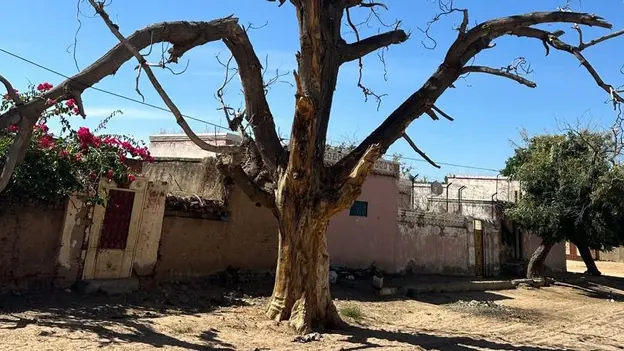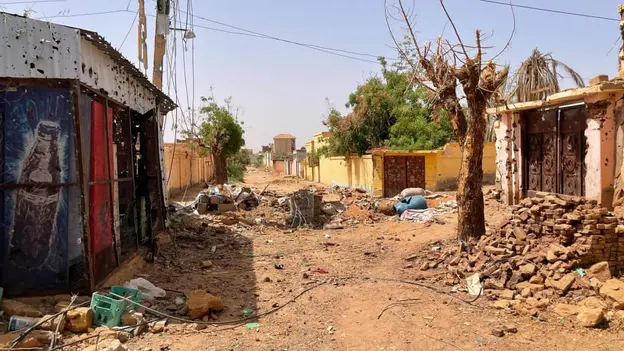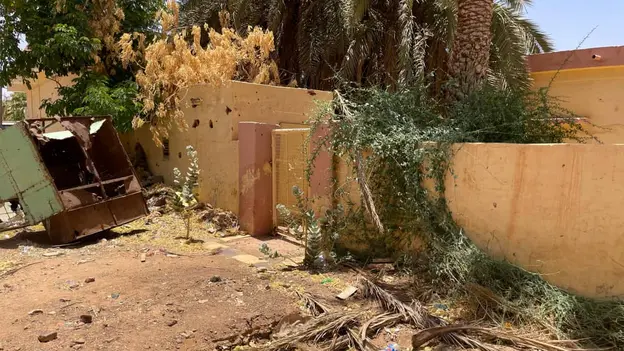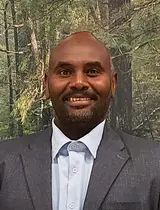Tandem Project
Exploring Urban Trees in Times of Crisis
Participatory Research
Sudan, like many countries from the Global South, faces severe environmental challenges, including the disproportionate effects of climate change and high levels of land degradation. Moreover, armed conflicts have further intensified environmental destruction, particularly through widespread deforestation and ecosystem damage.
Sudan’s forests and biodiversity have been deeply affected by the ongoing conflicts. The country’s vast savannas, woodlands, and riverine forests face increasing pressure due to war-driven displacement, deforestation, and resource exploitation as a result of troop movements and the settlement of displaced communities.
Trees have a special role to play in greening and cleaning our cities and urban areas. They cool down the microclimate, remove pollutants from the atmosphere and soil, mitigate climate change via carbon sequestration, and provide stable nesting sites for urban and migratory birds.
Knowing the condition of urban trees, especially in war zones, is an important prerequisite for maintaining their health and sustaining ecosystem services.
Ahmed Siddig
Using Citizen Science Methods to Collect Data and Raise Awareness
In urban areas, trees play a critical role in mitigating pollution, improving public health, and enhancing climate resilience. Their benefits extend beyond aesthetics, directly impacting air quality, temperature regulation, and overall urban sustainability. Trees serve as a crucial natural defence against environmental threats, yet there is a lack of studies estimating tree cover, diversity, and ecological contributions in many cities across Arab countries. Moreover, little data is available on how armed conflict affects the population and diversity of woody plant species.
This study aims to assess and quantify tree cover, diversity, the degree of destruction, and pollution of the immediate surroundings. Photos of tree growth, destroyed trees, and soil, as well as plant samples, were collected around Sudan with the help of dedicated citizen scientists. The combined investigation of soil and plant samples allows the project partners, Prof. Dr. Ahmed Siddig and Prof. Dr. Dennis Kraemer, to study the translocation and uptake of (potentially toxic) heavy metals, which provide important information on their environmental mobility and bioavailability. These data and samples will be analysed by AGYA members to identify necessary countermeasures and raise awareness of the importance of well-preserved urban tree spaces to mitigate climate change effects by offsetting emissions from human activities.
In preparation for the sample collection and to gain insights from best-practice examples, the project partners organised a Citizen Science training course, where the participants received training alongside colleagues from Sudan and Djibouti. Dr. Julia von Gönner shared her expertise in participatory research, biodiversity education, and innovative approaches to improve science-to-society interactions.
Investigating the role of trees in removing and remediating chemical residues and pollutants from armed conflicts is a vital and largely underexplored area of research.
Dennis Kraemer
Including Urban Communities in Ecosystem Services
Despite the ongoing conflict, challenges in mobility, and the limited availability of internet and telecommunications services, the project successfully connected with many people in the Sudanese cities of Khartoum, Wad Madani, and Nyala. By leveraging a network of friends, colleagues, and families, the project partners gathered valuable insights into the damage and disruptions affecting the trees in these areas. With nearly a hundred responses from volunteers involved in data collection, the project partners were able to gather valuable information on the extent and types of tree damage due to the ongoing armed conflict. In addition to tree photographs, soil and plant samples collected from citizen scientists for laboratory analysis, the project also made use of satellite imagery, providing deeper insights into the impact of Sudan’s war on urban tree diversity and ecosystem services in the cities under study.
Ahmed Siddig and Dennis Kraemer extend their gratitude to the project assistants Dr. Elmugheira Mockarram, Ms. Salma Elkaris, and Mr. Emad Yasin, who played a crucial role in sample and data collection on the ground despite numerous challenges and logistical obstacles. They also thank all the volunteers who collaborated with the project team in reporting their observations.
- Disciplines Involved
- Environmental Conservation, Geoscience
- Project Title
- Trees for Greening and Cleaning Cities in Sudan’s Crisis Zones
- Year
- 2024
- Funding Scheme
- Tandem Project
- Countries Involved
- Sudan, Germany, Djibouti




